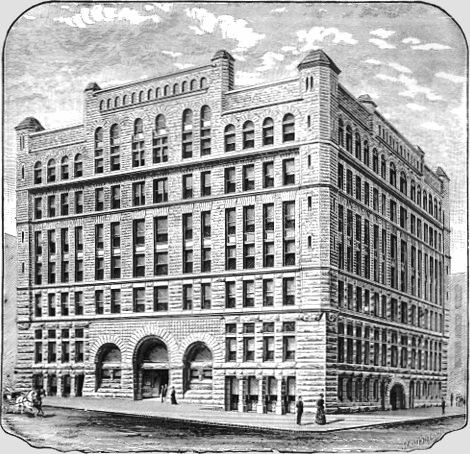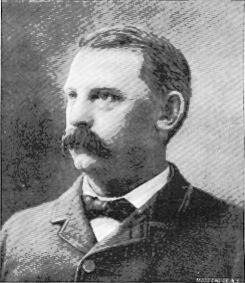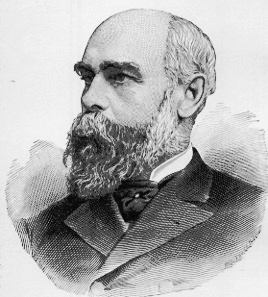|
exception of two or three, closed its doors. The Bank of Dakota, operated by Augustus Kountze, was one of the very few financial institutions that weathered the storm. It redeemed its entire circulation at par. The city of Omaha issued, during this year, $100,000 in city scrip for the completion of the Capitol Building. This scrip, which passed current when first issued, gradually depreciated until it became almost worthless. It was never 
THE "BEE" BUILDING redeemed except in the payment of taxes, for which some of it was used. This of course added to the general depression in Omaha, which continued throughout 1858. Men who but a short time before were in prosperous circumstances, found themselves financially embarrassed, business came to a standstill, real estate declined to nominal figures, and a despondent feeling everywhere prevailed. The population of Omaha decreased during the years 1858-59, and it was not until about 1861 that the city resumed its growth in any noticeable degree. The Colorado gold discoveries contributed much to Omaha's benefit, as a large portion of |
|
the travel passed through this city,
making it for a time a lively outfitting and merchandising
point. This travel kept up until 1864, and the merchants did
a rushing business.
Indians, and immediate assistance was needed to repel them. It was reported that the Indians numbered between 700 and 800 warriors. Hon. John M. Thayer, who was Major General of the Nebraska Militia, at once started for the front with the Light Artillery company, of Omaha under the command of Captain James H. Ford. Upon reaching Fontenelle, General Thayer found the reports concerning the depredations were true, and that the settlements for fifty miles had been broken up. He sent a report to that effect to Governor Black, and stated that vigorous measures would have to be immediately taken. Governor Black thereupon organized quite a strong force, and joined General Thayer on July 8th. The command consisted of the Omaha Light Artillery, the First Dragoons, the Second Dragoons, the Fontenelle Mounted Rifles, the Columbus Infantry, and the Columbus Guards, numbering altogether about 200 men, well armed and equipped. The "war" lasted only a few days. The Indians were overhauled and brought to terms. In his report General Thayer thus sums up the campaign: "The troops came upon the Indians and the Indians surrendered. The line was formed, the cannon was planted, and the chiefs of all the |
|||||||||
|
|
|
|

